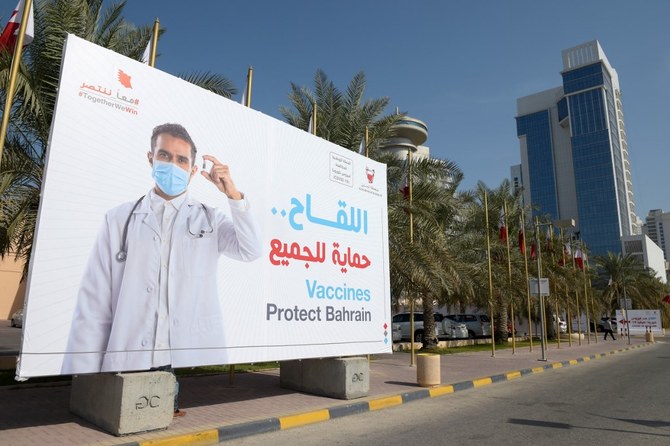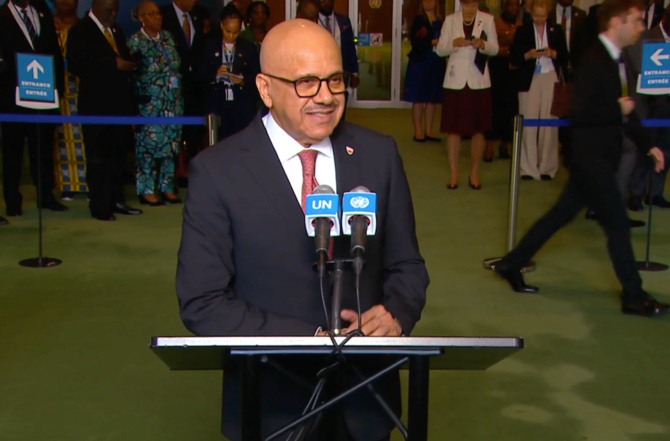Arab News
RIYADH: Bahrain’s successful response to the COVID-19 pandemic was built on active collaboration between various sectors in the Gulf state, according to a new WHO report.
The document titled “Bahrain COVID-19 Case Studies,” highlights the country’s wide-ranging efforts to get the health crisis under control and identifies lessons learned from that response.
The world health body credits strategic partnerships between public and private entities for the positive response.
Bahrain detected its first case of the virus on Feb. 24, 2020, and caseloads have remained relatively low during the pandemic, with only short-lived surges as a result of the delta and omicron variants. The country has lost 1,495 people to the disease since the start of the pandemic, according to the information organization Our World in Data.
The study was presented by Ahmed Al-Mandhari, the health organization’s head for the eastern Mediterranean region.
“I would like to acknowledge the resilience of the health system in Bahrain throughout the pandemic, and its continued provision of essential health services for all, under a framework of accessibility, acceptability, availability, and quality,” Al-Mandhari said.
“This new report provides us with a valuable reminder: Together we can face health emergencies, and together we can build back stronger,” he said in a joint press conference with Jaleela S. Jawad Hasan, the health minister, on Tuesday.
Hasan outlined some of the strategies that had helped to keep the virus in check on the small island kingdom of 1.7 million people.
Even before the first case appeared, Hasan said, Bahrain established a national task force coupled with a round-the-clock war room, featuring representatives from various sectors. A multilingual public media campaign to spread awareness was also introduced.
The report stated that by using its existing health infrastructure, the kingdom “capitalized on and scaled up its existing resources and displayed a level of preparedness and synergy of efforts from both the top down and the bottom up.”
King Hamad’s decision to provide testing and vaccines to the public free of charge was among the positive steps in handling the crisis, stated the authors of the report.
The lessons learned from what the country has achieved provide “invaluable insights into best practices that, shared, will have far-reaching and long-lasting effects beyond Bahrain’s borders,” the report concluded.
Hasan said Bahrain was committed to its cooperation with the WHO to combat the pandemic and achieve global health goals, according to the Bahrain News Agency.
On Tuesday, the health ministry reported 40 active hospitalized cases, 15 of which were critical.
Bahrain removed most COVID-19 restrictions in February, doing away with capacity limits at indoor venues and testing and vaccination requirements for travelers heading to the kingdom.






















